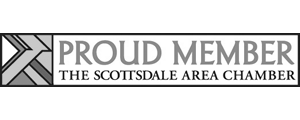Topic Clusters in SEO
Google is an influential search engine, and it keeps tweaking and updating its algorithm. The recent update has come in the form of topic clusters. Many companies are reconfiguring their web pages to adapt to the latest SEO changes by Google. They need to stay updated and follow the algorithm closely. Otherwise, they sit at the risk of losing web traffic and consumers.
What are topic clusters?
Topic cluster, as the name suggests, is a group of related content that covers a broad subject. Topic clusters aren’t new. WordPress introduced something similar around 17 years ago. However, HubSpot took topic clusters a notch up in 2016. A group of strategically interlinked pages built around one main and broad subject defines topic clusters.
Topic clusters are vital in SEO because they drive the key performance indicators. They are an efficient tool to use and derive value out of your digital marketing strategy. They differentiate from the strategy that targets one keyword at a time. Clusters make it easy to target entire topics and boost all the strategically linked pages simultaneously.
Use of topic clusters in digital marketing
The bottom line with SEO, digital campaigns, and ad campaigns is to give a major boost to website ranking, increase web traffic and conversions. Topic clusters can play a critical role in achieving all that and more. They are the smart key to earning credibility – in front of users as well as the search engine.
Research and experiments have shown that better linking was directly proportional to placement on search engine result pages. Google’s Hummingbird update in 2013 was officially the first step toward topic clusters. It focused on phrases instead of focusing on keywords. The next step was the RankBrain update by Google. This algorithm focused on understanding the context of people’s search queries. So, it can look for phrases and keywords relevant to the search words and deliver better results.
Impact of topic clusters on websites
Websites usually have a standard system with a home page and then sub-pages linked to the homepage. The creation of continuous additional content and no uniform structure can make it hard for the search engine to crawl through pages. Topic clusters are here to make the crawling job easy for search engines. Additionally, clustering similar topics under one broad umbrella will also help in increasing the website’s credibility to its end-users.
The clustering step will not only make it easy to scan the pages but will also indicate the presence of breadth and depth in the content. So, website credibility will also increase in front of the search engine resulting in better ranking on the search engine result page.
Here at PLM, we are experts with topic clusters in SEO and can help you take your digital marketing journey to a new level. If you are interested in improving your visibility in 2022, schedule a discovery call. We’ll be happy to show you some of the strategies we use.
Are You Ready To Take Your Website To a Whole Different Level?
Fill out the form below and get started by speaking to one of our marketing strategists. We built one of the best SEO and web teams to give our clients the best return on investment when it comes to their marketing.









